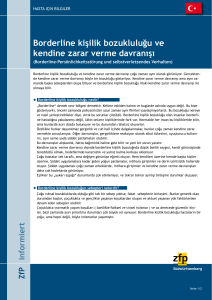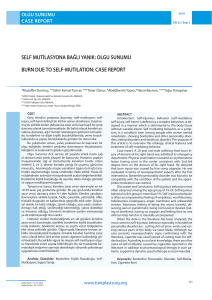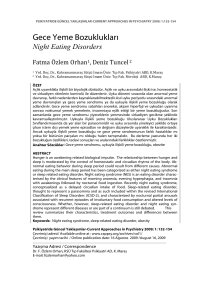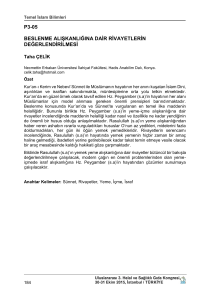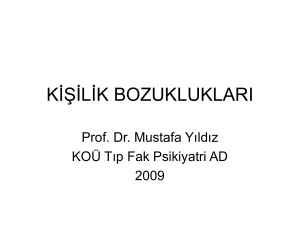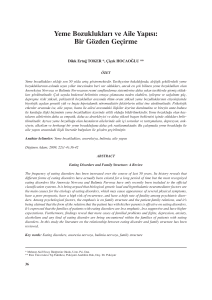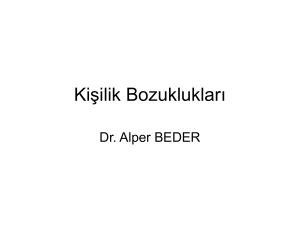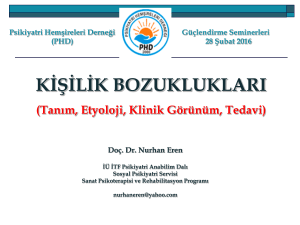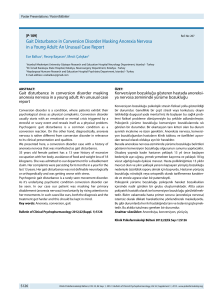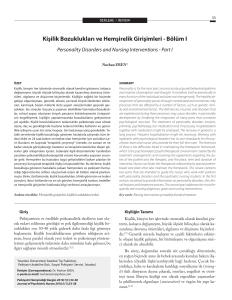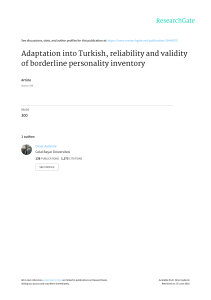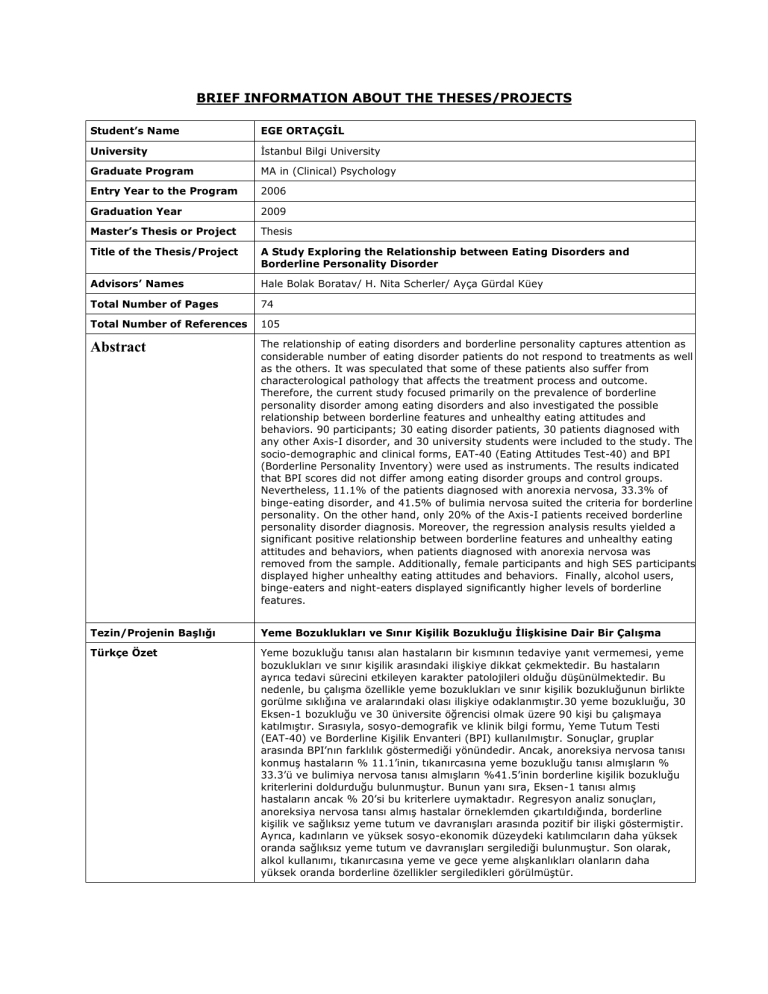
BRIEF INFORMATION ABOUT THE THESES/PROJECTS
Student’s Name
EGE ORTAÇGİL
University
İstanbul Bilgi University
Graduate Program
MA in (Clinical) Psychology
Entry Year to the Program
2006
Graduation Year
2009
Master’s Thesis or Project
Thesis
Title of the Thesis/Project
A Study Exploring the Relationship between Eating Disorders and
Borderline Personality Disorder
Advisors’ Names
Hale Bolak Boratav/ H. Nita Scherler/ Ayça Gürdal Küey
Total Number of Pages
74
Total Number of References
105
Abstract
The relationship of eating disorders and borderline personality captures attention as
considerable number of eating disorder patients do not respond to treatments as well
as the others. It was speculated that some of these patients also suffer from
characterological pathology that affects the treatment process and outcome.
Therefore, the current study focused primarily on the prevalence of borderline
personality disorder among eating disorders and also investigated the possible
relationship between borderline features and unhealthy eating attitudes and
behaviors. 90 participants; 30 eating disorder patients, 30 patients diagnosed with
any other Axis-I disorder, and 30 university students were included to the study. The
socio-demographic and clinical forms, EAT-40 (Eating Attitudes Test-40) and BPI
(Borderline Personality Inventory) were used as instruments. The results indicated
that BPI scores did not differ among eating disorder groups and control groups.
Nevertheless, 11.1% of the patients diagnosed with anorexia nervosa, 33.3% of
binge-eating disorder, and 41.5% of bulimia nervosa suited the criteria for borderline
personality. On the other hand, only 20% of the Axis-I patients received borderline
personality disorder diagnosis. Moreover, the regression analysis results yielded a
significant positive relationship between borderline features and unhealthy eating
attitudes and behaviors, when patients diagnosed with anorexia nervosa was
removed from the sample. Additionally, female participants and high SES participants
displayed higher unhealthy eating attitudes and behaviors. Finally, alcohol users,
binge-eaters and night-eaters displayed significantly higher levels of borderline
features.
Tezin/Projenin Başlığı
Yeme Bozuklukları ve Sınır Kişilik Bozukluğu İlişkisine Dair Bir Çalışma
Türkçe Özet
Yeme bozukluğu tanısı alan hastaların bir kısmının tedaviye yanıt vermemesi, yeme
bozuklukları ve sınır kişilik arasındaki ilişkiye dikkat çekmektedir. Bu hastaların
ayrıca tedavi sürecini etkileyen karakter patolojileri olduğu düşünülmektedir. Bu
nedenle, bu çalışma özellikle yeme bozuklukları ve sınır kişilik bozukluğunun birlikte
gorülme sıklığına ve aralarındaki olası ilişkiye odaklanmıştır.30 yeme bozukluığu, 30
Eksen-1 bozukluğu ve 30 üniversite öğrencisi olmak üzere 90 kişi bu çalışmaya
katılmıştır. Sırasıyla, sosyo-demografik ve klinik bilgi formu, Yeme Tutum Testi
(EAT-40) ve Borderline Kişilik Envanteri (BPI) kullanılmıştır. Sonuçlar, gruplar
arasında BPI’nın farklılık göstermediği yönündedir. Ancak, anoreksiya nervosa tanısı
konmuş hastaların % 11.1’inin, tıkanırcasına yeme bozukluğu tanısı almışların %
33.3’ü ve bulimiya nervosa tanısı almışların %41.5’inin borderline kişilik bozukluğu
kriterlerini doldurduğu bulunmuştur. Bunun yanı sıra, Eksen-1 tanısı almış
hastaların ancak % 20’si bu kriterlere uymaktadır. Regresyon analiz sonuçları,
anoreksiya nervosa tansı almış hastalar örneklemden çıkartıldığında, borderline
kişilik ve sağlıksız yeme tutum ve davranışları arasında pozitif bir ilişki göstermiştir.
Ayrıca, kadınların ve yüksek sosyo-ekonomik düzeydeki katılımcıların daha yüksek
oranda sağlıksız yeme tutum ve davranışları sergilediği bulunmuştur. Son olarak,
alkol kullanımı, tıkanırcasına yeme ve gece yeme alışkanlıkları olanların daha
yüksek oranda borderline özellikler sergiledikleri görülmüştür.

